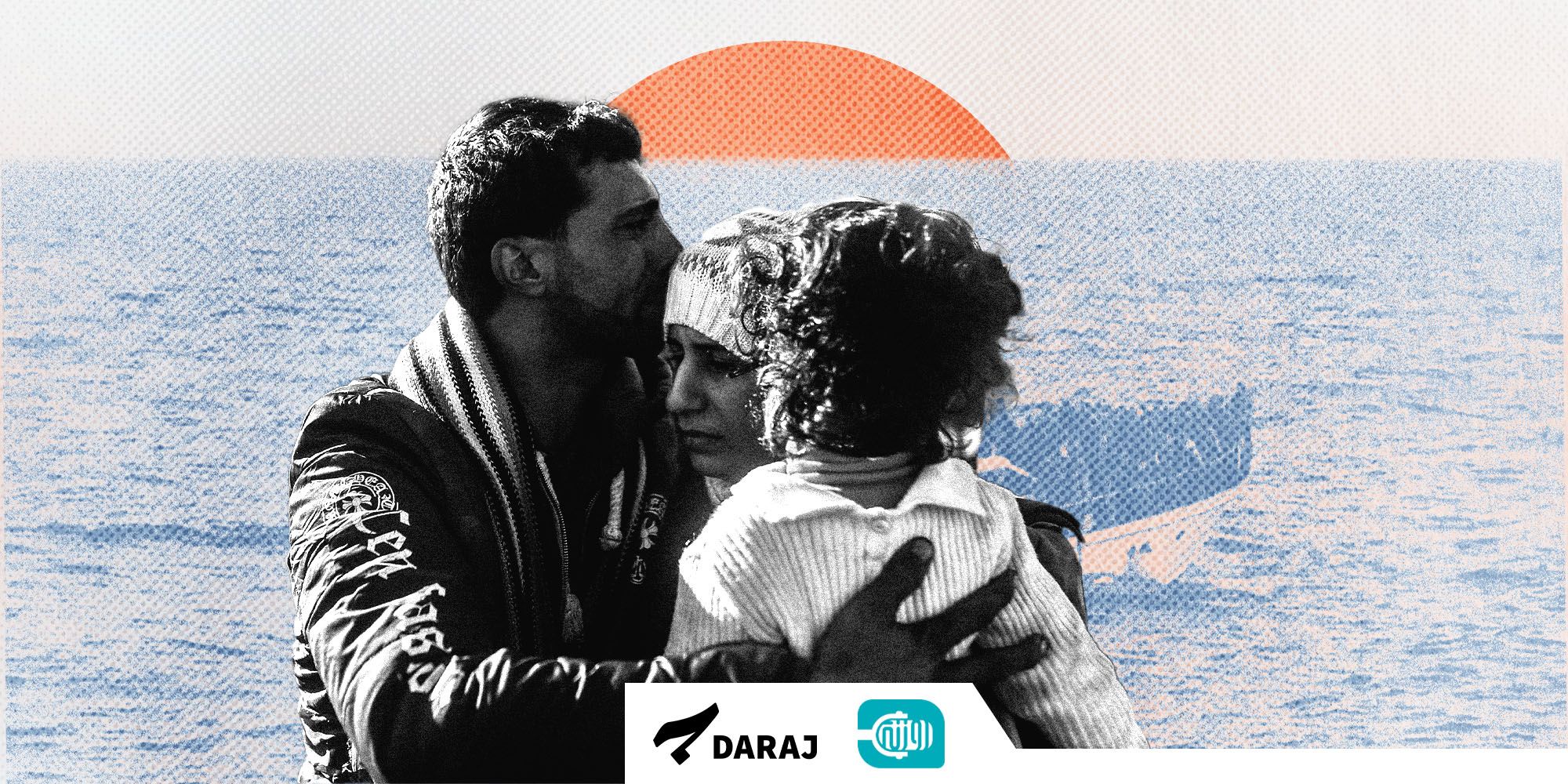
Human Trafficking on the Lebanon-Syria Border: 500 USD per Head!
pascal sawma
In the meantime, some are using the sufferings of poor Syrians and Lebanese living in northern Lebanon to make a profit and gain wealth without any consideration for their humanitarian situation or the dangers surrounding them.
“For 500 USD, we got my brother back from the traffickers on the Syrian border.” The sibling of a survivor of the last death boat explains. The boat had departed from northern Lebanon, and then stopped in Selaata after hours.
A number of families told Rozana that 234 people were on the boat, and that 194 of whom are Syrians. The engine broke down, and those on board couldn’t reach their destination. So, some of the passengers contacted their families. And, therefore, the Lebanese army and the UNIFIL managed to save the survivors and recover two bodies ــــthe refugee’s: Hamida al-Tafran, and the child’s: Wafaa al-Fizo.
The Lebanese army said, in a statement, that they moved passengers to the Port of Tripoli. However, the survivor Yasin Yasin indicated that “The Lebanese army had handed the Syrian passengers, including his sibling Gomaa, over to The 4th Armored Division in the border region of Wadi Khaled”. In addition, some reported that passengers had been given a severe beating by army personnel.
The conduct was condemned by the lawyer Mohammad Sablouh, who told Rozana that it’s contrary to the Lebanese law and the non-violence agreement that prohibits handing any person over to any entity that could endanger them. He added that the violence the survivors experienced “makes it necessary for the military command to start an investigation.”
Abu Gahaash cartel in Syria traded families for survivors’ lives.
The story doesn’t end here. According to Yasin, the passengers were later handed over to a trafficking cartel led by someone called Abu Gahaash in Syria. Families traded for survivors’ lives; in exchange for their return, each family had to pay 200 USD to the traffickers and 300 USD to the 4th Division in what seemed like human trafficking. “We were sold to our families for 500 USD.” Yasin said.
Based on the information Rozana has, Syrian passengers returned to Lebanon in exchange for the money paid by their families. On the other hand, new boats are getting ready to depart from northern Lebanon despite the bad weather and the big waves that could subject many lives to so many dangers ــــstarting with the danger or drowning and dying, but not ending with being handed over to the Syrian regime or the traffickers and human dealers.
“It’s not acceptable to hand refugees over to the Syrian authorities, and put their lives in danger, especially that a number of them are from the opposition.”
“It’s not acceptable to hand refugees over to the Syrian authorities, and put their lives in danger, especially that a number of them are from the opposition,” said Sablouh. “Public Security must issue the deportation order after reviewing each file, and checking their visa expiration; whether they’re wanted in their country; and the date of entering Lebanon in accordance with the Supreme Defense Council’s resolution issued on 15 April 2019 to deport Syrians entering Lebanon without passing the official border crossings.”
“In case a refugee holds a UN refugee card, then what the Lebanese army had done ــــ according to survivors and families ــــ is against the law; especially that there’s not a court order deporting the passengers of the boat.” the lawyer added.
This is not the first incident of its kind. On 22 September, after another boat had sunk near the coast of Tartus, the Syrian regime arrested a number of survivors on the grounds that they’re wanted. The survivors included Syrians, Lebanese, and Palestinians.
The story Rozana followed and documented the families’ testimonies confirming that the Syrian regime arrested their children. Rozana, later, knew that a number of the arrested were taken back to Lebanon after the interference of religious figures and official events amid mystery and unclear information from both the Syrian and Lebanese sides.
Recently, there’s been a rising tide of racism and demands for deporting Syrian refugees to their country. Convoys of returnees have already started moving without any consideration to the Return Policy currently unavailable in Syria. In the meantime, some are using the sufferings of poor Syrians and Lebanese living in northern Lebanon to make a profit and gain wealth without any consideration for their humanitarian situation or the dangers surrounding them.
